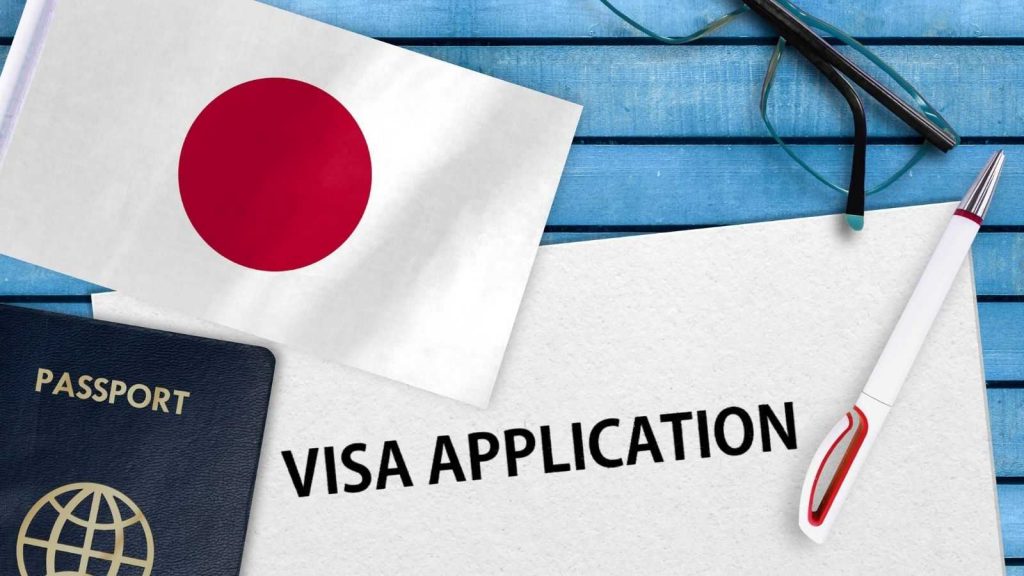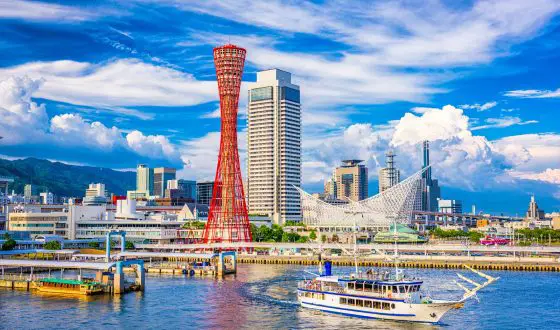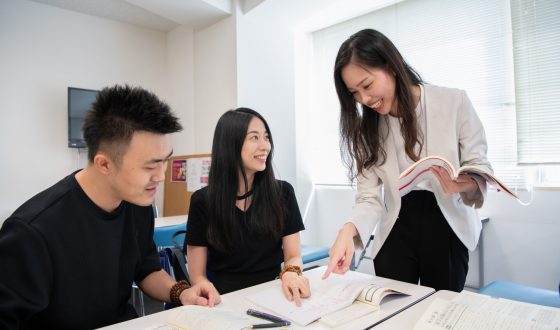Freelancing in Japan – How to Work for Yourself in Japan
While being your own boss may be the ideal, it’s not always the simplest or, dare we say, most reliable choice. But when things are going well, they’re very well. In general, you may charge a lot more per hour working as freelancing in Japan than you could as a paid employee. However, you will be in charge of setting up all that cumbersome bureaucratic work, such as health insurance, pensions, and making sure you put in enough hours to earn a living income!
Options for self-employment in Japan: business owner vs. freelancer
In Japan, there are primarily two ways to work for yourself. The first, and simplest, is to establish yourself as a sole entrepreneur or freelancer. The second, more challenging and expensive option is to launch your own firm.

In Japan, there are primarily two ways to work for yourself. (Source: Internet)
You must obtain the Firm Manager visa in order to launch your own business. This involves a considerable amount of time, money (at least 5 million yen ~ 36900.40 USD), and expert assistance (for example, from a lawyer).
It would take at least two articles to cover both areas, so let’s just start with the freelancer setup today.
Advantages of Freelancing
-
Workplace flexibility
You are free to choose your own hours as a freelancer. Additionally, working as a freelancer frequently doesn’t demand daily attendance at the workplace. You can conveniently work from home or your preferred coffee shop. Workload flexibility is another aspect. You get to decide if you want to work on a demanding project for several clients or take some time to unwind.
-
Many revenue streams
Some individuals might believe that freelancing is not a reliable career. However, spending all of your time at one organization might also be unstable. You may be fired and lose your only source of income if something were to happen at the business.
You have the opportunity to have multiple sources of income at once when you freelance. The money you received need not be the only factor; security may also be important. However, hourly pay for freelance labor is typically more than for full-time job.

You are free to choose your own hours as a freelancer. ( Source: Internet)
-
Self-management
You are in charge if you work for yourself. Of course, you must fulfill your clients’ desire for payment, but you always retain the power. You can decline potential clients if they exhibit indicators of unfavorable contracts. Additionally, you are not required to wait for a pay raise. You are the one who sets your own fee.
Who performs independent work in Japan?
For specialists or experts in a particular sector, such as translators and IT workers (e.g., programmers, UX/UI designers), working as a freelancer in Japan is a common option. Photographers, videographers, and illustrators are examples of those who produce creative content, while there is also the Artist visa option available to them as well as to writers, journalists, and designers. Of course, there are no restrictions if you work in any other industry and are convinced that you can find enough clients, both domestically and abroad.

For specialists or experts in a particular sector, such as translators and IT workers (e.g., programmers, UX/UI designers), working as a freelancer in Japan is a common option. ( Source: Internet)
It’s probably best to clarify that while we are not attorneys, we have expertise in Japan transitioning from company employees to independent contractors. Additionally, we’re writing this from the perspective of someone who holds an Engineer/Specialist in Humanities/International Services visa, one of the most prevalent visas available and the one that English teachers most frequently arrive with, so let’s get started.
You might also like:
- Weather In Japan In March – Travel Tips For Foreigners
- 8+ Jobs In Japan For Foreigners in Japan Without A Degree
- How To Rent An Apartment In Japan – A Detailed Guide For Foreigners
How to start a freelancer in Japan
To work as a freelancer in Japan, you must already be there with a valid visa.
The process of moving from employment to self-employment will be covered in this article. It will take a bit more legal know-how to enter Japan as a self-employed worker without a visa and without a strategy to establish a Business Manager visa.
1. Locate clients
Even if this argument is obvious, it should nevertheless be made. When it comes to clients, it’s frequently preferable to have a number of smaller clients rather than just one large one because, in the event that something were to go wrong and you lost that one large client, you would be in a precarious situation.

When it comes to clients, it’s frequently preferable to have a number of smaller clients rather than just one large one. ( Source: Internet)
Although it always depends on the person’s style of living, we’d advise trying to earn at least 350,000 yen ~ 2549.72 USD to 400,000 yen ~ 2913.96 USD each month so you can save and have a safety net. It’s up to you how you locate clients, however for the purposes of immigration and paperwork, it’s preferable to have more Japanese-based clients than foreign clients.
2. Verify that your visa is appropriate for the job you want.
Imagine, for instance, that you wanted to be a performer and that you entered Japan on a humanities visa. Because these positions come under two different categories, you would need to request authorization from immigration to do so (humanities versus entertainment). Application for Permission to Engage in Activity Other Than That Permitted Under the Status of Residence Previously Granted (資格外活動の許可) is the name of the permission form.

Imagine, for instance, that you wanted to be a performer and that you entered Japan on a humanities visa. ( Source: Internet)
This stage is not required if you want to continue doing a similar job to what you had previously done or if your university degree is relevant to the type of work you are doing in Japan. For instance, I work as a writer and studied media and communication.
All of that falls under the category of “humanities,” thus the visa and the position are officially compatible. To avoid future hassles, it is important to check with immigration if you are unsure whether the new job is close enough.
3. Set up a health insurance plan
The first thing you should arrange for if you’re in Japan and have recently quit your full-time job to start your own business is health insurance.

The first thing you should arrange for if you’re in Japan and have recently quit your full-time job to start your own business is health insurance. ( Source: Internet)
Employees of many firms are covered by group health insurance plans; however, if you quit that employer, you are no longer covered. To enroll in Kokumin Kenko Hoken – 国民健康保険, Japan’s national healthcare system, go to your neighborhood municipal hall. If you sign up, the government health insurance program will pay for your medical requirements. It’s really simple, really.
Just remember to bring your identification, such as your residency card (zairyu card – 在留カード) and employment history.
4. A form for a sole proprietor
The next step is to register as a sole proprietorship, or kojin jigyo – 個人事業 in Japanese, which refers to operating as a one-person firm.
Individuals from the following categories—excluding Japanese citizens—may seek to become sole proprietors:
- People who are married to Japanese nationals
- Those possessing a permit to remain a permanent or long-term residence
- A working holiday visa holder (with no restriction until the visa expires)
- A dependent visa, a student visa, or a visa for cultural activities (as long as you have permission to engage in other activities granted by the immigration office) specialists and workers with work permits who have agreements in place with Japanese businesses
People with work visas who work as freelancers on the side
It’s incredibly simple to achieve that! Simply fill out this form (in Japanese) and mail it to your neighborhood tax office.
Tax-related matters
The only other time you really need to consider it after that is when thinking about taxes. The white form and the blue form are both available for sole proprietorships. You must complete the blue form if your company has a significant amount of operational expenses that you must deduct from your revenue during tax season. However, the white form should be acceptable if you work as a translator or writer and your biggest expenses may be a new computer and some international travel.

The only other time you really need to consider it after that is when thinking about taxes. ( Source: Internet)
You have two choices when it comes to filing your taxes: either visit your local tax office and ask a staff member for assistance (don’t wait until the last minute! ), or pay an accountant. The rate for the accountant will range from 50,000 yen ~ 369.00 USD to 120,000 yen ~ 885.61 USD, depending on what you need from them (this number comes solely from experience). Remember to save all of your receipts for lunch meetings, energy, internet, etc. since you can receive every penny back, advises me, the writer who consistently forgets.
Renewing your visa as an independent contractor
So now that all the paperwork is done, you can focus on being a productive independent business. It’s time to start getting everything in order so you can renew your visa without too much fuss, but you realize you just have a few months left on it.
To be clear, you’ll see people discussing “self-sponsoring” their visa in internet forums and other places. If you want to get technical, a self-sponsored visa doesn’t exist. The self-sponsored approach basically entails filling out a “Permission to Engage in Activities” form for your other jobs and asking one of your part-time employers to sponsor your visa.

It’s time to start getting everything in order so you can renew your visa without too much fuss, but you realize you just have a few months left on it. ( Source: Internet)
It’s preferable to request sponsorship from your highest-paying client who is based in Japan. The renewal of the visa is free for the firm, but they are required to provide comprehensive information about the business, such as funds. You should absolutely employ an immigration attorney to guide you through the procedure; this will increase your chances of obtaining a renewal.
KPIs for the visa’s finances
To be eligible, you must demonstrate to immigration that you can earn a 3,000,000 yen ~ 22140.24 USD (or 250,000 yen ~ 1845.02 USD) monthly salary. Although other people claim less, that is the safest bare minimum. And by all means, show more if you can by showing contracts from your clientele.
What you must bring
You can verify the list on the immigration office’s website, but as a general rule, make sure the following things are prepared:
- Passport photo( 4×3 cm)
- Your passport and your Zairyu card
- The two most recent tax years’ returns
- Evidence of your earnings and work (contracts from clients, invoices too to be safe)
- Possibly, you’ll require Employment Certificate (zaishoku shomeisho – 在職証明書)
- Gensen Choshu Hyo – 源泉徴収票, or Tax Withholding Slip, from your neighborhood ward office
You’ll need proof of retirement (taishoku shomeisho – 退職証明書) from any Japanese companies you’ve left since the last time you went through this immigration process.
FAQs
1. Is it legal to freelance in Japan?
In Japan, it is legal to work as a freelancer and is not against the law. According to Lancers’ 2021 research, there were 5 million more independent contractors in Japan in 2021 than there were in 2020. According to the survey, 24% of Japan’s working population falls under the category of independent contractors.
2. How much money do freelancers in Japan make?
The cabinet overseeing Japan’s economic revival surveyed 7,478 independent contractors in Japan in May 2020. The survey’s findings revealed that freelancers earn between 2 yen million ~ 14760.16 USD and 3 yen million ~ 22140.24 USD annually on average (Japanese PDF). The average yearly income of freelancers in Japan was estimated at 1.46 million yen ~ 10774.92 USD in a separate analysis by Lancers in 2021.
3. What kinds of online jobs can one find in Japan?
The following are the top possibilities for foreigners looking for work from home employment in Japan:
- English language teaching online.
- Online translation from English to Japanese or from Japanese to English.
- Software development
- Bilingual client services
- Consultancy in hiring
- Support for a virtual assistant
4. What distinguishes sole owners from independent contractors in Japan?
In Japan, the term “freelance” describes a method of employment that entails project-by-project contracts. In Japan, “sole proprietorships” are a tax categorization given when a kaigyo todoke “opening notification” is submitted to the tax office. In summary, sole proprietorships (kojin jigyo) are a taxable organization under Japanese tax law, and freelancing refers to a way of working under project contracts.
They refer to different items even though they are frequently used interchangeably.
5. What percentage of their income is taxed in Japan?
In Japan, sole owners’ income taxes are based on their earnings.
- The tax rate on taxable income under 1,949,000 yen ~ 14383.77 USD is 5%.
- 10% of taxable income between 1,950,000 yen ~ 14391.15 USD and 3,299,999 yen ~ 24354.25 USD is subject to tax.
- The tax rate on taxable income ranges from 3,300,000 yen ~ 24354.26 USD to 6,949,900 yen ~ 51290.81 USD.
- The tax rate on taxable income ranges from 6,950,000 yen ~ 51291.55 USD to 8,999,000 yen ~ 66413.33 USD and is 23%.
- The tax rate on taxable income ranges from 9,000,000 yen ~ 66420.71 USD to 17,999,000 yen ~ 132834.04 USD and is 33%.
- 40% of taxable income between 18,000,000 yen ~ 132841.42 USD and 39,999,000 yen ~ 295195.79 USD is subject to tax.
From $40,000,000 yen and beyond, there is a 45% tax rate on taxable income. Here is a graph that JETRO has shared.

The National Tax Agency published a study of 2018 income tax returns in 2020. According to the research, sole owners earned an average of 4.17 million yen ~ 30774.93 USD per year in 2018. The online magazine Moneyism computed the average annual tax payments made by the various income tax categories in Japan using the data from that report.
The average income tax paid by sole proprietors with taxable income under 1 million yen ~ 7380.08 USD was 8300 yen ~ 61.25 USD. On the other end of the spectrum, sole proprietors who had taxable income between 5 million yen ~ 36900.40 USD and 10 million yen ~ 73800.79 USD paid an average income tax of 533,300 yen ~ 3935.80 USD.
Final Thought
One of the most significant obstacles for foreign residents interested in freelancing in Japan is ensuring that their visa documentation is in order. However, once it is resolved, you must still complete the remaining documentation in order to comply with Japanese requirements.










